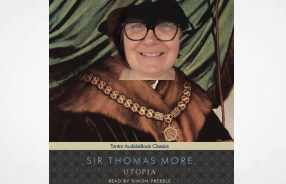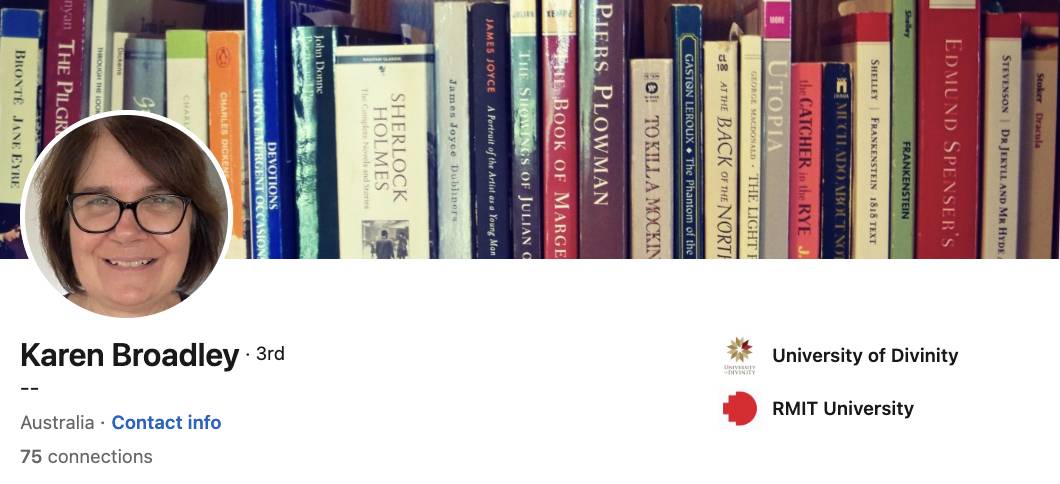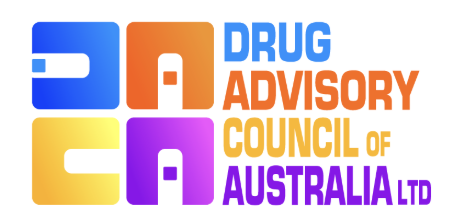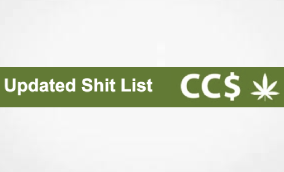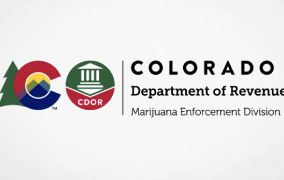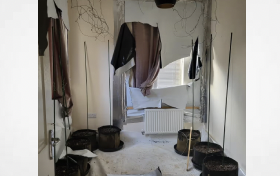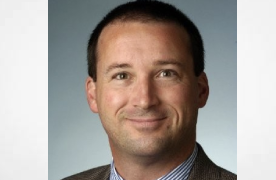The author of this is Karen Broadley PhD an executive member of the Drug Advisory Council of Australia Ltd.
Here’s her info and the two important things to notice that shape her argument (s) are as you’ll see below is that she works(ed) in child protection and studied at the Australian Catholic University.
She doesn’t give herself a current role and is it of significance that her Linked In bookshelf features a copy of Thomas More’s Utopia, read below and you will see below that it is
Here’s what the Drug Advisory Council of Australia Ltd.say about themselves
Before we start a little research on news weekly.com illustrates that i thought it was little more than a coincidence that More sits on her bookshelf amongst the Arthur Conan Doyle
Wikipedia
https://en.wikipedia.org/wiki/News_Weekly
News Weekly is an Australian current affairs magazine published by the National Civic Council, a conservative Christian lobby group. Its main headquarters are in Balwyn, Victoria,[1][2] with offices also in Queensland, New South Wales, Western Australia and South Australia.[3]
History and profile
News Weekly was founded by B. A. Santamaria and first published in September 1943, under the name Freedom. It later changed its name to Australia’s national news-weekly,[3] and adopted its current name in 1946–47.[4][5][6][7]
News Weekly adheres to the five primacies[8] of the National Civic Council: “natural family as the basic unit of society”, decentralisation, “integrity of the individual”, patriotism, and “Judeo-Christian virtues”.[3]
According to the Kempsey Library listing, News Weekly provides analysis of current cultural, social, political, educational, and economic trends in Australia, focusing on ethics.[9]
News Weekly relies on your support!
News Weekly, published by the National Civic Council for over 80 years, receives no government grants or major sponsors.
We need you, our readers and supporters, to join us. Monthly, quarterly, annual and once-off options are available. (See below).
The Fighting Fund is News Weekly’s annual special appeal.
The NCC posts out Regular Appeals by direct mail and you can sponsor the training program for young adults by sponsoring Ypat below.
PAYMENT OPTIONS: You can proceed through checkout using any card, or Direct Debit, or checkout faster using G-Pay or Apple-Pay.
- National Civic Council Publishes News Weekly and seeks to build a healthy, flourishing, prosperous society for all Australians, based on careful analysis of how to improve on Australia’s current policies.
- Thomas More Centre Formation, faith discussions, youth training program. You can sponsor someone to do Ypat below.
Now we are clear on the politics and where the reasoning comes from I think it is time to read the opinion piece with a little more context
The Fly in the Medical Cannabis Ointment: Doubts Over Medical Indemnity
WHAT MUST BE DONE
It seems that the walls are closing in on the medical cannabis industry. The hype, the weak evidence base, the misinformation and misleading marketing, the unethical conduct including the conflicts of interest, and all in the face of the body of solid research that has built up over the last years documenting the serious adverse effects of cannabis, are being brought into the light.
● Exposing the truth about medical cannabis is a collective effort. We at DACA are hopeful that more medical insurers will follow the lead of MDA National, and that medical indemnity companies will restrict cover to cannabis prescribers.
● We also hope that the findings of research reported on in The Conversation, other investigations, and concerns raised by Australian health regulators will result in improved regulation, and fines for breaching the rules. And better still, the closure of private medical cannabis clinics.
According to a media release from the Australian Health Practitioner Regulation Agency (AHPRA) in February 2024, more than one million Australians had used medical cannabis up to January 2024.
Imagine how many more Australians will grow and use cannabis if it is legal for them to grow it, self-medicate with it, and give it to friends and family so they can self-medicate with it too.
This is what the Legalise Cannabis Party is advocating for. On its website it says: “Legalisation will enable affordable access to safe cannabis therapeutics via home-grow and licensed dispensaries.”
It recommends: “Workshops for patients about growing cannabis for food and medicine, educating them on all aspects of safely making their own medicine, including information on production, dosing and administration routes.”
So, why is the Drug Advisory Council of Australia (DACA) concerned about the push to legalise cannabis? And more specifically, why is DACA concerned about enabling Australians to grow and self-medicate with cannabis?
Unregistered Products
Since medical cannabis was legalised in 2016, there has been a huge growth in the number of Australians using cannabis for so-called medical reasons. Most do not seek a doctor’s prescription. They source their cannabis through private medical cannabis clinics and other means.
Most of the cannabis products being used by Australians are also unregistered. According to AHPRA, the use of unregistered medicinal cannabis products has spiralled in recent years.
Currently, only two cannabis products are registered, meaning that they have been rigorously evaluated for their safety, quality and effectiveness and allowed entry into the Australian Registry of Therapeutic Goods (ARTG). Whereas about 500 cannabis products are unregistered and are what the vast majority of Australians are using.
These products have not been assessed by the Therapeutic Goods Administration (TGA) as being safe and effective. The scientific evidence in support of these products is still very weak.
The Australian Medical Association did not support the Legalising Cannabis Bill 2023 that was introduced by Senator David Shoebridge (the Greens) into the Australian Parliament. Fortunately, the Bill did not pass. The Legalise Cannabis Party is currently working to try and legalise cannabis in Victoria.
So, why do so many Australians believe that medical cannabis is the real deal? There is a great deal of hype and misinformation about the benefits of medical cannabis. Information that is found online is not always aligned with the best and most recent scientific evidence.
In January this year, The Conversation carried a report from researchers at the University of Queensland, Carmen Lim and Wayne Hall. Their investigation found that many people who source medical cannabis online from private medical cannabis clinics are subject to misleading marketing. When they looked at 54 medical cannabis websites, they found “many examples of aggressive and misleading marketing. Some clinics breached regulatory guidelines. Others bent the rules.”
Their “research revealed widespread breaches of TGA guidelines”. A “common breach was to make unsubstantiated health claims about the benefits of medicinal cannabis, including that it could treat anxiety, depression, or other mental health symptoms”. “Websites often allowed people to assess their own eligibility for medicinal cannabis.” The researchers expressed concern about public health.
Former president of the AMA Dr Michael Gannon similarly reported in The Australian on December 27, 2024: “Medical cannabis is a growth industry that is not only dependent on prescribing doctors, but even more so businesses that have sprung up, selling medical cannabis online.”
Of course, “there are clear conflicts of interest in these businesses who manufacture, prescribe and dispense cannabis”.
An ABC investigation recently found: “Australia’s peak medical bodies have repeatedly warned medicinal cannabis operators are poorly regulated, with some driven by profit.”
In June 2024, the Medical, Nursing and Midwifery and Pharmacy Boards of Australia and AHPRA echoed all of these concerns.
It is important to remember that cannabis – regardless of whether it has the word “medical” in front of it or not – is a drug. And the adverse effects of using cannabis are well documented. These adverse effects include psychosis, affective disorders, anxiety, suicide, suicide ideation, sleep disorders, cognitive failures, respiratory adverse events, including lung cancer, cardiovascular outcomes and gastrointestinal disorders.
It is also important to note that most medical cannabis products contain THC (tetrahydrocannabinol), which is the chemical that gets people high and impairs cognitive functioning. These impairments occur not only in the acute phase, they often last for days, sometimes weeks following the cannabis use. This means that an individual’s working memory, reaction time, and processing speed may remain impaired for weeks after they last used cannabis.
Cannabidiol (CBD), which many people believe has no adverse effects, is touted for its therapeutic qualities. Although CBD is not psychoactive and does not cause a high, it definitely does have adverse effects. These, according to a recent systematic review include “drowsiness, sedation, fatigue, dizziness, headache … ”.
What all this tells us is, not only is there insufficient research to support the effectiveness of cannabis for a whole range of ailments, there is also the question whether the risks outweigh the benefits. With very limited research guidance, and no TGA approval, prescribing doctors “go out on a limb” every time they prescribe cannabis to a patient.
So, given these concerns, why would any doctor be willing to prescribe cannabis? The reality is that many doctors are reluctant to prescribe cannabis. The lack of prescribing doctors is one of the reasons for the explosion in the number of specialist medical cannabis clinics selling medical cannabis online.
According to a recent qualitative study in the Drug and Alcohol Review examining Australian medical practitioners’ perspectives on prescribing medicinal cannabis, the main reasons for their reluctance relate to cannabis being an unapproved medicine, the time-intensive prescribing process, and the legal liability of prescribers.
This last reason is particularly interesting. It is not just that doctors are concerned about adverse side effects as a result of prescribing products that have not been approved by the TGA. Doctors are more commonly concerned about patients driving under the influence of THC and claiming that they had not been properly informed of the risk.
Some doctors cited the potential lack of support from medical insurers.
In July 2024, MDA National, an Australia-wide medical insurer that has around 54,000 health-professional members, described cannabis prescribing as an “unusual practice”. It said: “Doctors who prescribe medicinal cannabis as a standalone practice will need to undergo assessment from MDA National to confirm their cover as part of its new indemnity policy that starts on 1 July, 2024.”
It is interesting to note that a year earlier, the same insurer – MDA National – had restricted the cover of practitioners providing treatment to children with gender dysphoria. On its website, MDA wrote: “In response to the risk of potentially high-value claims arising from irreversible treatments provided to those who medically and surgically transition as children and adolescents, MDA National is restricting cover for practitioners in private practice.”
Karen Broadley PhD is an executive member of the Drug Advisory Council of Australia Ltd.
The Fly in the Medical Cannabis Ointment: Doubts Over Medical Indemnity
